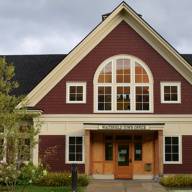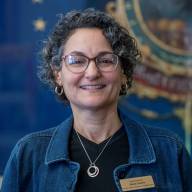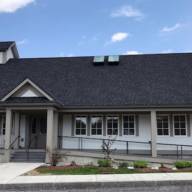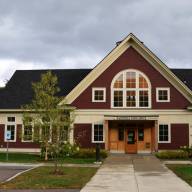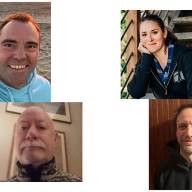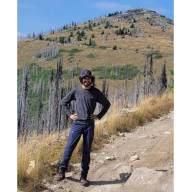Photo: Clesson Eurich when he worked at Mad River Glen.
It’s been a long time since I have written an article for this column. I don’t want you to think I have forgotten about you but I’ve been awful busy. The third edition of “Take Me Back: An Anecdotal History of the Mad River Valley” needed to be launched. My fourth novel, “Down on the South Beach Drag” just came out on Simon and Schuster too. And that’s been a very different experience than putting out my other books. All of this takes time. But I thought I would spend a few hours on this Tuesday morning and sit down and write about a Mad River Valley legend – Clesson Eurich. It was his son Kevin who sent me a transcript of an interview he gave that was recorded.
Vermont Humanities reports that Jane Beck founded the Vermont Folklife Center in 1983 and served as its executive director until 2007. During that time, she traveled the back roads of Vermont recording oral interviews of everyday Vermonters, and produced a variety of media productions, exhibitions, and publications. In 1992 she took the time to interview one of The Valley’s own and that was Clesson. In the interview Ms. Beck and Mr. Eurich are identified by their initials. It is worth paying attention to the cadence of his word choice and rhythm, for that gives us clues to the makeup of the original Vermont accent.
JB: You were originally from Warren?
CE: I was born up in where Sugarbush is now, above the radio station in Warren. We had a big farm, 500 acres. Went to school, clear down on Route 100, 2 1/2 miles each way, each day. And we walked most of the time. And of course, back then, we had to be in school half past eight every morning. And it went until 4 at night before school was out. So then. We had to walk the 2 1/2 miles back home. It was my older brother Ed and my older sister Marian. And later on, it was my twin brother and sister, Madeline and Roger. We had everything to do; we had work to do. And sometimes we were kind of late getting home.
Fifty-five years ago we had a chance to buy the farm up there. The 500 acres for $3.500. But nobody let you have the money! And of course, there was no lights up there, no telephone. We had to maintain our own telephone [if we wanted one]. So, we just decided we didn't want it. It wasn't long afterwards that it was sold for $100,000 and some. And the last I knew it; it was almost $1,000,000 they sold the farm for. And it's all split up now, of course. Sugarbush Inn still owns part of it, I think.
JB: The Sugarbush Inn was built on part of your land?
CE: No, they were right in the corner of our land that was built on Patterson, the one where the Common Man is [This was a popular restaurant for decades], that piece of land where that was built on. But back then you couldn't get the money, that's all. My grandfather would have signed a note for us. All he wanted was $3,500. But we didn't want to tie ourselves back up in there with no way to get out or anything. Of course you had to maintain your own road in the winter.
JB: When was that? That must have been in the late 40s.
CE: No, it was before that, in the 30s. We were married. And it was about that time. ’37,’38, ‘39. ’40. There still was no power line up there or anything. We had what they called carbide lights in the house. It was a good life.
And Sugarbush came along quite a few years later. Mad River come in first. And when Mad River was there? I worked up there for quite a few years. It was a different group than what come into Sugarbush all together. Because most of them that come into Mad River built their own homes up there and everyone knew everyone else that skied there at the time.
I know progress has to be. A lot of them built just over the mountain too, Starksboro and through there. An awful lot of people. They still have homes over there. And they come ski Mad River with their children. On the whole, the biggest share of the skiers that come in there are not that bad. They aren't our ways, but it's like Waitsfield, the same as Warren. Exactly as far as that goes. I think there's just one native on the select board in the town of Waitsfield and Warren both. David DeFreest is the only one in Warren that was original. A native, I call him and the school boards and everything else. They have different ideas... They spend a lot of money that local folks don’t care too much about. They’re voted down because there are too many outside voters. And the local people just aren’t staying there, The younger folk and all are moving out because they just can't afford the living. It's very expensive to live in The Valley if you have your own home. Taxes are terrible!
That is the same sentiment that many locals have today. And in this interview Clesson has a lot more to say. When I get a few minutes I will sit down again and keep telling his story. Thank you all for reading. You can reach me at




